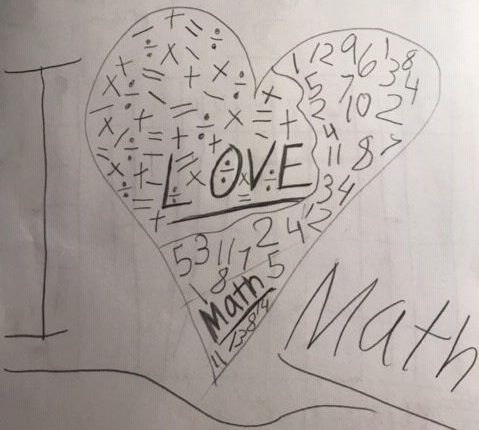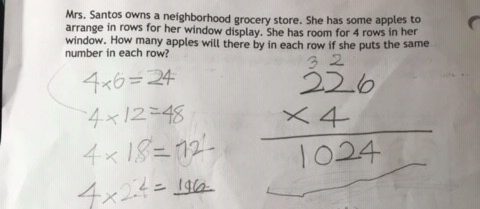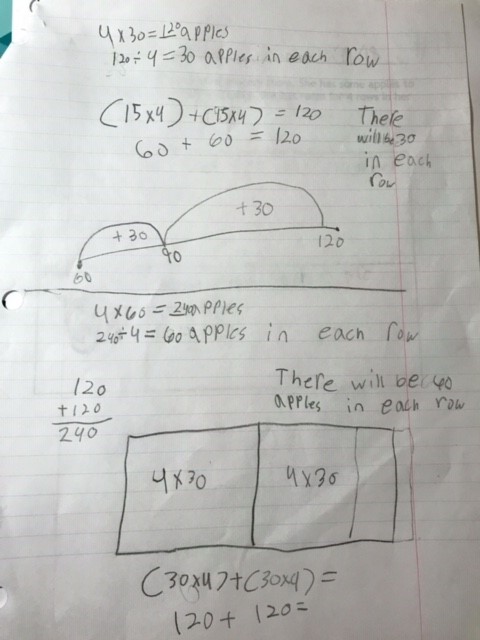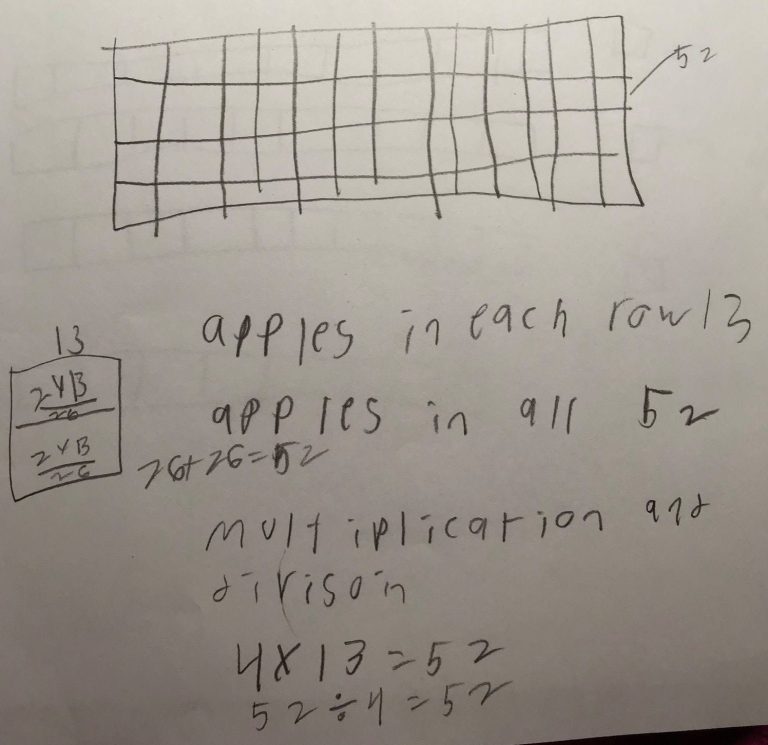
A classroom teacher currently engaged in Zeroing in on Math’s Deeper Learning work and former EdVestors’ Math Fellow.
Over the past few weeks, my fourth-grade math class at the Oliver Hazard Perry Elementary School worked together on multiplication. We tackled word problems that challenge students to connect relevant components of questions, apply mathematical thinking and knowledge to their approach, and prove their answers through alternative solutions. The curriculum recommends a lesson plan that first presents a problem to the students, then allows the students to solve the problem, and finally provides more problems for students to work on.
We often tell students to take risks and make mistakes because they lead to learning. Yesterday, my own mistake led to lots of learning, excitement, challenges, and opportunities for more learning.
We recently encountered our first word problem that involved division and I decided to slightly alter the introduction of the problem. I did this by removing the questions, to see what students would notice and wonder about the problem. However, in doing so, I accidentally removed the total numbers of apples too.
The question read:
Mrs. Santos owns a neighborhood grocery store. She has some apples to arrange in rows for her window display. She has room for 4 rows in her window.
(The scenario I meant to give them read that Mrs. Santos had 52 apples to arrange in 4 rows.)

Productive Curiosity
Upon hearing the lively chatter around the room, I decided not to share the original problem with the total number of apples. I challenged my fourth graders to think about how many apples there might be in total and how they might go about representing the situation. In our classroom, we have a range of math proficiency from one student working at a first-grade level to students far above grade-level. Students played with various approaches to a solution: some worked with cubes, some tried factors of 16, others pushed themselves to multiply with larger and larger numbers they haven’t multiplied before!
We reconvened as a class after fifteen minutes to discuss what different groups tried. I began the conversation with the notion that many groups wrestled with: that Mrs. Santos only had 16 apples. Half of the class was convinced 2 rows of 8 apples was possible until their classmates pointed out the problem stated she had 4 rows to work with. Group after group presented their work around multiplication until one student came to the revolution that “this is a division problem!” He explained his reasoning and I saw light bulbs go off in their heads and hands shot up with excitement!
One group who placed 98 apples on each row shared their work and found 98 x 4 = 392. Their classmates were intrigued by the large numbers and mentioned how large the windows must be to fit all the apples,
I promised the class more time to work on the problem after lunch and cheers erupted across the classroom, “My head is exploding with ideas!” One student who often confuses mathematical concepts whispered, “This is the best math class ever – it’s starting to make sense now!”

“SWEATY BRAINS”
At the Perry, we celebrate “sweaty brains”. A sweaty brain happens when students challenge themselves with harder problems than what is asked of them. Exercising their brains furthers their conceptual knowledge.
After lunch, I wrote out key questions: How many apples are in each row? How many apples does Mrs. Santos have in all? Where does this concept show up in their work? Where does this show up when writing both the multiplication and division equations of this situation?
Students challenged themselves with more and more 3-digit numbers and checked in with me to see if they were right. I asked them to prove their work by using another strategy, so they kept multiplying and dividing with more and more large numbers!
Engaged and Joyful Learning
When it was time to wrap up, the students groaned and wished they had more time – I was ecstatic to hear it! Before leaving class, each student had to solve the original problem that stated Mrs. Santos had 52 apples to arrange equally in 4 rows. I was impressed that all but 5 students correctly solved the problem using multiplication and division concepts they learned and retained. For the 5 students who didn’t solve the problem correctly, I now have a targeted approach to talk through their misconceptions.
As any teacher will tell you, teaching can be mentally, emotionally, and physically. But yesterday, it was just pure joy. Every kid stayed engaged with one problem for over an hour – one problem! This lesson reminded me that kids don’t need to do ten, twenty, or hundreds of problems to learn. They just need the right context and questions to explore – and with that, learning is engaging, invigorating, and joy-filled.


To learn more about Zeroing in on Math, click here.
The Oliver Hazard Perry K-8 School was a 2018 School on the Move Finalist, click below to learn more about the Perry K-8.



